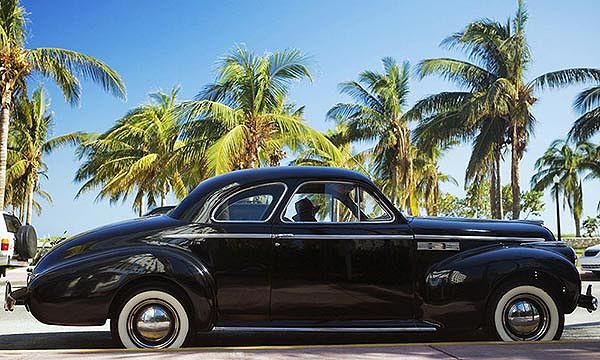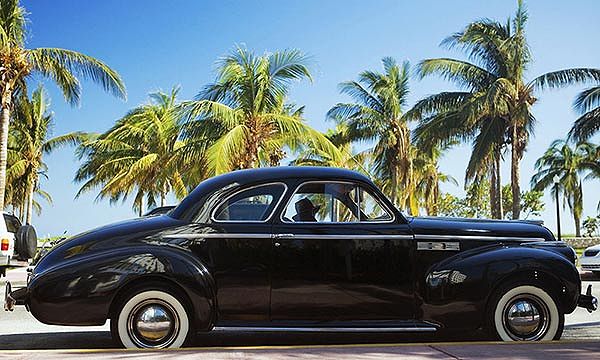As a Florida resident, I know firsthand how navigating the car insurance landscape can be a daunting task, especially when it comes to insuring our teenage drivers. As a mom, I’ve been through this process myself, and I’m here to share my insights and strategies to help you find the best car insurance quotes in Florida and keep your teen driver safe on the road.
Florida’s Graduated Licensing System: A Roadmap for Teen Drivers
In Florida, we have a graduated licensing system designed to ease our young drivers into the responsibilities of the road. It’s a step-by-step process that helps them gain valuable experience before obtaining their full driver’s license. Let me walk you through the key stages:
The Learner’s Permit
To get a learner’s permit in Florida, your teen must be at least 15 years old. They’ll need to pass a written exam and provide proof of identity and residency. During this stage, they can only drive when accompanied by a licensed driver who’s at least 21 years old. For the first three months, driving is limited to daylight hours, after which they can drive until 10 PM.

The Intermediate License
After holding the learner’s permit for 12 months and completing at least 50 hours of supervised driving practice (including 10 hours at night), your teen can apply for an intermediate license at age 16. This license offers more freedom, but certain restrictions remain. For example, they can’t drive between 11 PM and 6 AM during the first three months, and there are limits on the number of passengers under 21.
The Full Driver’s License
Once your teen reaches 18 years old, they can apply for a full driver’s license, provided they’ve successfully completed the graduated licensing program. This final step removes most restrictions, granting them the same privileges as any adult driver in Florida.
Mandatory Car Insurance Coverage in Florida
As a no-fault state, Florida requires all drivers, including teens, to carry a minimum level of car insurance coverage. Let’s break down the key requirements:
Minimum Coverage Essentials
At a minimum, your teen’s policy must include Personal Injury Protection (PIP) and Property Damage Liability (PDL) insurance. PIP covers medical expenses for the driver and passengers, regardless of who’s at fault, with a minimum limit of $10,000. PDL covers damages to another person’s property caused by the insured driver, also with a minimum limit of $10,000.

Additional Coverages for Added Peace of Mind
While the minimum requirements are essential, there are additional coverages that can provide extra protection for your teen driver. Collision coverage helps pay for repairs to your vehicle after an accident, while comprehensive coverage protects against non-collision incidents like theft or vandalism. Uninsured/Underinsured Motorist (UM/UIM) coverage is another valuable option, safeguarding against accidents involving drivers without adequate insurance.
I know these decisions can be overwhelming, but by weighing the pros and cons of each coverage type, you can make an informed choice that fits your family’s needs and budget.
Strategies for Finding the Best Car Insurance Quotes in Florida
Now, let’s talk about how to get the most competitive car insurance quotes for your teen driver. As a savvy Florida mom, I’ve learned a few tricks along the way:
Shop Around and Compare
One of the most important steps is to shop around and compare quotes from multiple insurance providers. Many companies offer user-friendly online tools that allow you to input your information and receive quotes quickly. This not only helps you identify the best pricing but also gives you a better understanding of the coverage options available in the market.

Leverage Discounts for Teen Drivers
Insurance companies often offer various discounts specifically for teen drivers. Good student discounts are common, rewarding those who maintain a certain GPA. Safe driver discounts can also apply to teens who complete driver’s education courses or maintain a clean driving record. I always encourage my kids to take advantage of these opportunities to lower their premiums.
Consider a Higher Deductible
Opting for a higher deductible can significantly reduce your monthly premiums. However, it’s essential to balance this decision with your teen’s financial situation. Discuss the implications of a higher deductible, ensuring they understand the potential costs involved in the event of an accident.
Bundle Policies for Added Savings
Bundling your car insurance with other types of insurance, such as homeowners or renters insurance, can lead to substantial savings. Many providers offer discounts for bundling, so be sure to evaluate your current policies and consider switching to a provider that offers these benefits.
Promoting Safe Driving Practices for Teen Drivers
As parents, one of our top priorities is ensuring our teens develop safe driving habits. Here are some key practices I’ve found to be incredibly valuable:
Importance of Driver’s Education
Enrolling your teen in a reputable driver’s education program is essential. These courses provide comprehensive training, covering both classroom instruction and behind-the-wheel practice. The skills and knowledge gained through these programs can make a significant difference in your teen’s ability to navigate the roads safely.
Avoiding Distractions
Distracted driving is a leading cause of accidents among teens. I’ve made it a point to have open conversations with my kids about the dangers of using cell phones or other electronic devices while driving. Providing them with statistics on distracted driving accidents has really helped drive the message home.
Speeding and Aggressive Driving
Speeding and aggressive driving pose serious risks on the road. I’ve made sure my teens understand the penalties associated with these behaviors and the importance of adhering to speed limits and traffic laws. Reinforcing the gravity of these issues has helped them develop a more responsible mindset behind the wheel.
Driving Under the Influence
Driving under the influence of alcohol or drugs is a completely unacceptable behavior. I’ve had frank discussions with my kids about the legal drinking age in Florida, the consequences of DUI offenses, and the importance of making responsible choices.
Defensive Driving Techniques
Encouraging your teen to practice defensive driving techniques can be a game-changer. These skills help them anticipate potential hazards and react appropriately, ultimately keeping them and others on the road safer.
Resources for Teen Drivers and Families
Throughout this journey, I’ve found a wealth of valuable resources that have helped my family navigate the complexities of teen driving in Florida. I highly recommend checking out the following:
- Florida Department of Motor Vehicles (DMV)
- Florida Department of Highway Safety and Motor Vehicles (DHSMV)
- Local driving schools offering reputable driver’s education programs
- Organizations dedicated to teen driver safety and education
These resources can provide essential information, support, and guidance as you and your teen embark on this exciting new chapter.
FAQ
Q: What is the minimum driving age in Florida?
A: The minimum driving age for a learner’s permit in Florida is 15 years old. A driver’s license can be obtained at 16 years old after completing the graduated licensing program.
Q: How much does car insurance typically cost for a teen driver in Florida?
A: The cost of car insurance for teen drivers can vary greatly depending on factors like driving record, vehicle type, and coverage levels. It’s important to shop around and compare quotes from different insurance companies to find the most affordable options.
Q: What are some tips for keeping car insurance rates low for a teen driver?
A: Maintaining a clean driving record, enrolling in driver’s education courses, and considering a higher deductible can all help keep car insurance rates down for teen drivers.
Q: Is it possible to get car insurance for a teen driver who doesn’t own a car?
A: Yes, some insurance companies offer “non-owned” car insurance coverage, which can protect teens who drive borrowed or rented vehicles.
Q: What should I do if my teen driver gets into an accident?
A: Stay calm, ensure everyone is safe, and contact your insurance company immediately to report the accident. Follow their instructions carefully to ensure a smooth claims process.
Conclusion
Finding the right car insurance for your teen driver in Florida can be a complex process, but by understanding the state’s graduated licensing system, mandatory coverage requirements, and available discounts, you can ensure your teen is properly protected on the road while keeping costs manageable.
As a fellow Florida parent, I hope the strategies and insights I’ve shared in this guide have given you the confidence and tools needed to navigate the car insurance maze and find the best coverage for your family. Remember, shopping around, leveraging discounts, and promoting safe driving habits are key to keeping your teen driver safe and your insurance costs down. Let’s work together to keep our roads in the Sunshine State as secure as possible.



